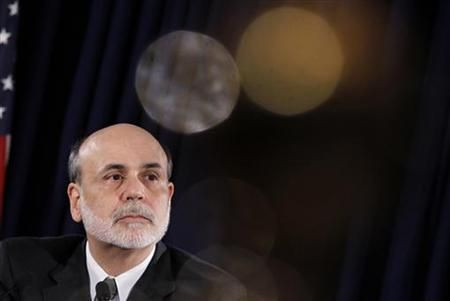Fed Focused Intently on Job Creation: Bernanke

Spurring stronger growth and more robust job creation in the weak recovery are top priorities for the Federal Reserve, Chairman Ben Bernanke told a military audience at a rare public forum on Thursday.
For a lot of people, I know, it doesn't feel like the recession ever ended, Bernanke said in remarks prepared for delivery before a town hall-style forum at which he is expected to field questions from 175 military personnel and family members.
Bernanke said the 9 percent jobless rate and record numbers of long-term unemployed Americans are serious problems preoccupying policymakers.
We at the Federal Reserve have been focusing intently on supporting job creation. Supporting job creation is half of our marching orders, so to speak, he said.
The Fed's other job is to keep inflation in check. Bernanke said inflation should moderate and remain close to the Fed's preferred level of 2 percent or a bit less for the foreseeable future.
Bernanke defended aggressive Fed policies against critics who charge the U.S. central bank has recklessly printed money without regard for the dangers of inflation or a weaker dollar.
It is important to understand that this type of activity isn't the same as government spending, he said.
Public appearances by a Fed chairman are rare. Bernanke's second-ever town-hall meeting -- the last was in July 2009 -- may reflect a desire to counter critics of both political parties.
Republicans have focused on attacking the Fed's extensive easy money policies, saying the central bank has failed to revive the economy despite cutting interest rates to near zero and buying $2.3 trillion in bonds. Some have warned the Fed against taking actions best left to fiscal policy makers.
Democrats have charged the Fed with implementing policies that benefit Wall Street while disregarding the economic struggles of ordinary Americans. Some argue Fed policymakers should be subject to greater accountability.
(Reporting by Mark Felsenthal; Editing by James Dalgleish)
© Copyright Thomson Reuters 2024. All rights reserved.





















